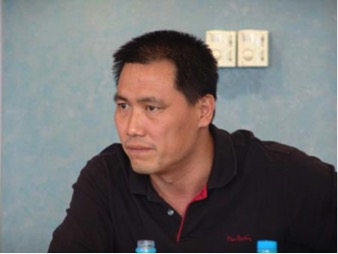[CHRB] Pu Zhiqiang Detained 14 Months Without Trial, Recently Denied Lawyers’ Access & Medical Treatment (7/3-7/9/2015)
Comments Off on [CHRB] Pu Zhiqiang Detained 14 Months Without Trial, Recently Denied Lawyers’ Access & Medical Treatment (7/3-7/9/2015)![[CHRB] Pu Zhiqiang Detained 14 Months Without Trial, Recently Denied Lawyers’ Access & Medical Treatment (7/3-7/9/2015)](https://www.nchrd.org/wp-content/uploads/2015/07/Detained-human-rights-lawyer-Pu-Zhiqiang-浦志强-has-been-denied-access-to-his-lawyers-and-medical-treatment..jpg)
China Human Rights Briefing
July 3-9, 2015
Arbitrary Detention
Detained for More Than 14 Months Without Trial, Pu Zhiqiang Denied Lawyers’ Access & Medical Treatment

Detained human rights lawyer Pu Zhiqiang (浦志强) has been denied access to his lawyers and medical treatment.
Prominent human rights lawyer Pu Zhiqiang (浦志强) has recently been denied access to legal counsel and proper medical treatment, according to information obtained by CHRD. Pu has now been held in pre-trial detention for more than 14 months at Beijing No. 1 Detention Center. Beijing prosecutors indicted Pu on May 15 on charges of “creating a disturbance” and “inciting ethnic hatred” for posts he wrote on social media. Some of the tweets criticized government policies toward Uyghur minorities or mocked party officials. No trial date has been set.
Lawyers Mo Shaoping (莫少平) and Shang Baojun (尚宝军) sent a letter to the Beijing No. 1 Detention Center, in which they complained about recent restrictions that hampered their efforts to meet with their clients, Pu Zhiqiang as well as the dissident journalist Gao Yu (高瑜). On June 2, the lawyers requested to visit Pu, but were not granted permission to meet him until June 23. This three-week deprivation of counsel visitation violates China’s Criminal Procedure Law, which states a defendant should be given access to a lawyer within 48 hours of a request (Article 37). Lawyers Mo and Shang also complained about restrictions imposed during their meetings with Pu and Gao, including being forced to meet in a room separated by glass and only for a maximum of 40 minutes. Such restrictions have no legal basis, said the lawyers. Moreover, their meetings with Pu have been recorded and videotaped, according to the lawyers, which are clear violations of China’s Lawyers Law (Article 33).
CHRD also has learned from sources close to the case that Pu continues to be denied any medical treatment for prostatitis, an infection of the prostate gland. Pu’s health has been of great concern since his detention began in 2014, since he also suffers from diabetes, high blood pressure, and high cholesterol, and has been periodically denied access to proper medication or been subject to grueling 10-hour interrogations. His lawyers have repeatedly applied for release on medical bail, but authorities have rejected all applications, in one instance stating that Pu would “pose a danger to society” if released. Gao Yu, 71, is also reportedly unable to received proper treatment for severe and regular heart pains, and she suffers from heart disease, high blood pressure, Meniere’s disease (an inner ear condition), and a chronic skin allergy. She has reportedly only been given traditional Chinese medicine to treat the heart pain.
The lawyers demanded that authorities investigate these incidents of abuses of their clients’ legal rights and act according to the law in handling these cases. Lawyers Mo and Shang are also representing Gao Yu in her appeal against her seven-year prison sentence for “illegally disseminating state secrets overseas” handed down in April. Gao remains held at the Beijing No. 1 Detention Center while the ruling on her appeal is still pending.
In May 2015, the UN Committee Against Torture raised to the Chinese government the issue of Pu’s health, together with other similar cases, and requested authorities address concerns about the widespread practice of depriving dissidents of medical treatment as a form of political retaliation. These are among many issues that the Committee raised in its “List of Issues,” concerns that are sent to the government requesting more information, as China undergoes its fifth review of its compliance with the Convention Against Torture. A government delegation will face the Committee’s questions in a formal dialogue, set to take place in Geneva in November.
Pu’s case is emblematic of the crackdown on online speech under Chinese President Xi Jinping. A 2013 Supreme People’s Court and Supreme People’s Procuratorate interpretation defined the Internet as a “public space” and allows authorities to apply the crime “creating a disturbance” (Criminal Law Article 293(4)) to online speech, which will likely be used as legal justification to prosecute him. The increased use of this charge is seen in 71 cases CHRD documented of individuals held on suspicion of “creating a disturbance” in late 2014 for posting online messages of support for the protests in Hong Kong. The government has taken further steps to legislate its crackdown on the Internet with the introduction on July 8 of a new Internet Security Law, which would allow authorities to restrict Internet connectivity in entire regions to “maintain public order.”
Contacts:
Renee Xia, International Director (Mandarin, English), +1 240 374 8937, reneexia@chrdnet.com, Follow on Twitter: @ReneeXiaCHRD
Victor Clemens, Research Coordinator (English), +1 209 643 0539, victorclemens@chrdnet.com, Follow on Twitter: @VictorClemens
Frances Eve, Researcher (English), +852 6695 4083, franceseve@chrdnet.com, Follow on Twitter: @FrancesEveCHRD
Wendy Lin, Hong Kong Coordinator (Mandarin, Cantonese, English), +852 6932 1274, wendylin@chrdnet.com, Follow on Twitter: @WendyLinCHRD
Follow CHRD on Twitter: @CHRDnet
